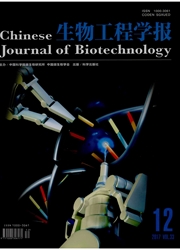

 中文摘要:
中文摘要:
虽然合成生物学还处于早期研究阶段,但最近十年,该领域取得了非常显著的研究进展。合成生物学是以工程学思想为基础,通过人工设计、改造基因线路,从而赋予细胞或生物体新的功能,现已广泛应用于各个领域。随着人们对基因线路设计的深入研究,使得合成生物学研究走向临床应用成为可能。本文将围绕哺乳动物合成生物学在疾病治疗方面的研究进展,介绍基因线路的设计思路和方法、不同诱导因子调控的开环式基因线路以及用于疾病诊疗的闭环式基因环路在生物医学领域的应用。最后对合成生物学走向临床治疗的应用前景和挑战进行展望。
 英文摘要:
英文摘要:
Although still in its infant stage, synthetic biology has achieved remarkable development and progress during the past decade. Synthetic biology applies engineering principles to design and construct gene circuits uploaded into living cells or organisms to perform novel or improved functions, and it has been widely used in many fields. In this review, we describe the recent advances of mammalian synthetic biology for the treatment of diseases. We introduce common tools and design principles of synthetic gene circuits, and then we demonstrate open-loop gene circuits induced by different trigger molecules used in disease diagnosis and close-loop gene circuits used for biomedical applications. Finally, we discuss the perspectives and potential challenges of synthetic biology for clinical applications.
 同期刊论文项目
同期刊论文项目
 同项目期刊论文
同项目期刊论文
 期刊信息
期刊信息
